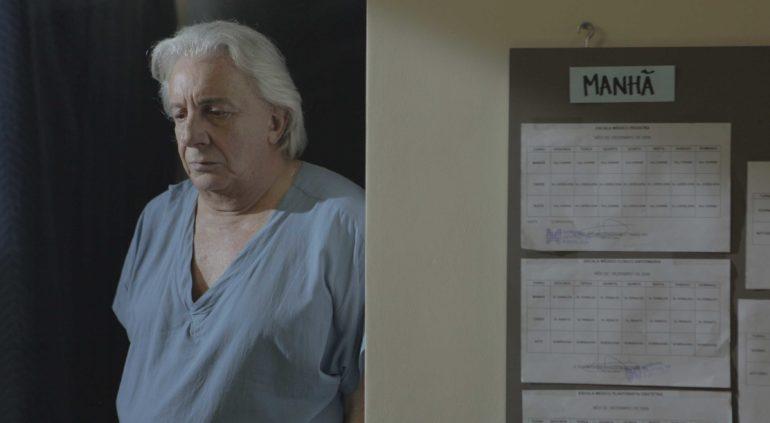“Greta” Offers Compassionate Look at Brazilians on the Margins
By Christopher Vourlias
LOS ANGELES (Variety.com) – BERLIN — An elderly gay nurse who idolizes Greta Garbo struggles to cope with the dire prognosis for his ailing transgender friend, until a surprising affair with a younger man brings an unexpected chance to break free from his solitude.
“Greta” is an emotional portrait of intergenerational love, life and loss among a marginalized class of Brazilians. Armando Praça’s directorial debut, which world premiered at the Berlin Film Festival, stars iconic stage and TV actor Marco Nanini, Denise Weinberg, Demick Lopes, and Gretta Sttar.“Greta” was produced by Carnaval Filmes with Segredo Filmes. Berlin-based M-Appeal is handling international sales.
Praça spoke with Variety about giving a compassionate face to marginalized people, creating opportunities for transgender actors, and facing the challenges for Brazil’s LGBT community after the country’s rightward turn.
“Greta” was inspired by “Greta Garbo, Who Would Imagine, Ended Up in Irajá,” a play that was written in the 1970s. Can you tell me how and why you decided to adapt it as a contemporary film?
When I saw it in 2008, it was a comedy. I saw that there was a human drama behind it, but the way it was being portrayed was almost like a caricature. For me, I thought it would be interesting to adapt this comedy into a drama, and portray this drama in a more contemporary way. My interest was no longer that they would laugh at these characters, and how marginalized they were, but that they would understand and identify with these characters. When I came across the play, my idea was that people would look at it as a drama, not a comedy, and see its relevant side and its human side.
Brazil’s newly elected president, Jair Bolsonaro, has publicly attacked the LGBT community. How much have attitudes in your country changed since the play was written, allowing you to make a film like “Greta” today?
Forty years ago, it was only possible to touch this subject in a shallow way, in a comedic way, as a caricature. Right now, because I ask people to look at these characters from a more human perspective, that already reveals there has been a change. In the last 10 to 20 years, there have been many advances for the LGBT community in Brazil. And although the project is already 10 years old, it’s coming out now, when Brazil is going through this very particular moment.
We now have a president that is homophobic, and has made negative comments about the LGBT community. And yes, we can say that he was democratically elected. This is a difficult moment. But what this film wants to do is make people look at these characters with empathy. More than ever, we need to look at these characters with empathy and compassion.
You cast Denise Weinberg, a cis-gender actress, as Daniela, and trans actress Gretta Sttar to portray Meire, a cis-gender woman. What inspired that decision?
For me, it would be impossible to do a film that shows a transgender person without having a transgender actress in it. But doing just that seemed to be very little. I would be fulfilling almost like a political requirement, but it would not be enough for me. For me, it was important to make clear that we can have a transgender actress or a cis actress play whatever character. Also, because this gives them the artistic freedom that the remaining cast has. It’s a statement that we need to bring transgender actors into films to play whatever characters, transgender or not.
“Greta” is about marginalized characters dealing with their loneliness in different ways. Why did you think it was important to explore their solitude?
It’s important that you noticed that, and thank you for that. Because the film is really about that. This is a human experience, and it’s independent of LGBT experience. I think that’s something that I want to touch on in the future films that I’ll be doing in the years to come, to focus on existential questions. There aren’t that many. We have death, suicide, love, loneliness. These are the subjects that we can communicate with audiences anywhere, and in 30 or 40 years, our message can still come across. Because the political questions and social questions can somehow be solved, and overcome. But these existential questions are the ones that we will forever ask. For me, it’s important that these existential questions are the main questions of the film.

